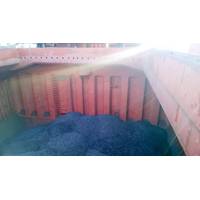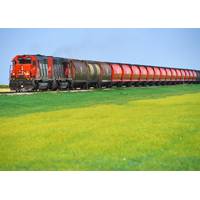More 'Green' Power Needed To Meet Paris 2030 Target

According to DNV GL’s latest energy report ‘Energy Transition Outlook: Power Supply and Use’, eight times more wind and solar power is needed by 2030 to help meet the Paris Agreement on climate change’s target. This transition will require more than ten times power generated by the solar means and five times the wind power currently being generated in combination with other technology measures to limit global warming to well below 2 degrees and meet the targets of the Paris Agreement. The report saysthe energy transition…
Wärtsilä Forms New Biofuel Arm
Finnish shipping technology group Wartsila has merged its Puregas Solutions and biogas liquefaction teams to form a new Biogas Solutions unit that will offer its customers a ‘one-stop-shop service’ for advanced biofuel production.Wärtsilä Biogas Solutions, a unit with expert capabilities in liquefying upgraded biogas for end-customer use, offers products for biogas upgrading to biomethane, and the liquefaction of biomethane into bioLNG."Currently, our market share in this field is almost 60 percent, and we expect this to continue to grow as we further develop our capabilities…
India's Thermal Coal Imports Could Rise 10 pct in 2019

India's thermal coal imports could rise by about 10 percent in 2019 due to rail transport problems and other logistical bottlenecks, an executive at the country's largest coal trader Adani Enterprises said on Tuesday.Thermal coal imports rose in 2018 after two years of decline, despite moves by Prime Minister Narendra Modi’s government to cut the country's imports in a bid to reduce the trade deficit.Rajendra Singh, chief operating officer for coal trading at Adani Enterprises, said thermal coal imports this year…
Pucks and Pellets: Canada Eyes New Ways to Move Crude

Canada's biggest railroad says it is attracting interest from oil producers in its effort to move crude in solid, puck-like form, as clogged pipelines divert more oil to riskier rail transport.Congested pipelines have stranded much of Canada's crude in Alberta, driving discounts to record-high levels. Canadian heavy crude traded on Friday for less than one-third of the U.S. benchmark light oil price.The latest blow to the sector landed on Thursday, when a U.S. court ruled construction must stop on TransCanada Corp's…
Police Fire Water Cannon at Dakota Pipeline Protesters in Freezing Weather
Police fired tear gas and water at hundreds of protesters in North Dakota opposed to an oil pipeline in freezing weather late Sunday and early Monday, in the latest violent clash between law enforcement and activists over the $3.7 billion project. A joint statement from several activist groups said protesters were trying to remove the burned vehicles blocking Backwater Bridge in order to restore access to the nearby Standing Rock encampments so emergency services and local traffic can move freely. Police fired volleys of tear gas at the protesters to prevent them from crossing the bridge.
ABB Debuts Energy Saving Transformer
Breakthrough technology delivers significant weight reduction and energy savings in rail transportation. ABB unveiled its next-generation traction transformer designed to reduce the weight of on-board components and ensure more energy-efficient rail networks, two of the rail industry’s priority objectives. Named Effilight, the product was unveiled as a ‘world premiere’ at InnoTrans, the leading global rail industry symposium, being held in Berlin, Germany, from Sept 20 to 23, 2016. Effilight can potentially reduce the total weight of a train’s traction component by up to 20 percent, equivalent to the weight of around 20 passengers.
NTSB Study: ECP Brakes Out-Perform Other Systems
As part of its ongoing investigation of the derailment of a crude oil unit train in Casselton, North Dakota, today the National Transportation Safety Board produced a Train Braking Simulation Study, which it placed into the investigation docket. The study was prompted by recent North American crude oil and ethanol train derailments that resulted in the release of large volumes of flammable liquids that endangered persons, property, and the environment. The study shows that Electronically Controlled Pneumatic (ECP) brake systems out-performed distributed power configurations, which in turn out-performed conventional brake systems.
Buckeye Pipeline Quietly Makes Key Acquisition
Houston-based logistic firm Buckeye Partners has spent more than $3.5 billion buying assets since 2010, transforming itself from a quiet regional pipeline utility into an emerging energy powerhouse. But the acquisition that may best symbolize its evolution is one the company didn't tout to investors this summer: a Washington lobbyist. After spending most of the past century pumping fuel from one place to another, the 128-year-old company has become a key player in the import and export of North American oil, with…
Study: Bakken Crude Safe for Rail Transport
The North Dakota Petroleum Council is set to release a study later this month adding to the number of industry voices concluding that Bakken crude oil is safe to move by rail because it is no more flammable than other crude grades. The study will show that Bakken crude is not more flammable or volatile during rail transportation than benchmark West Texas Intermediate, Kari Cutting, vice president of the council, said on Thursday during the Crude Oil Quality Association conference in Denver. The council represents more than 500 companies in the oil and gas industry.